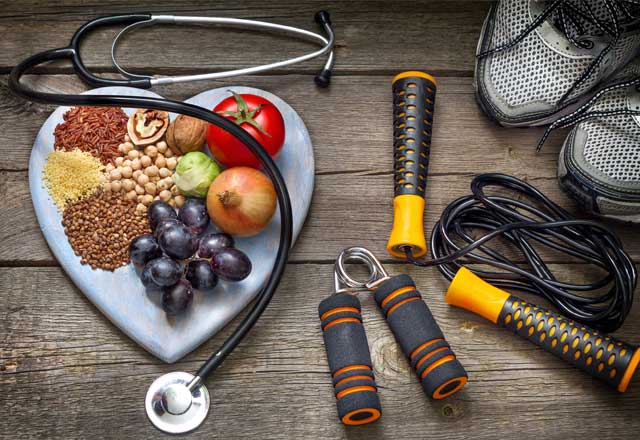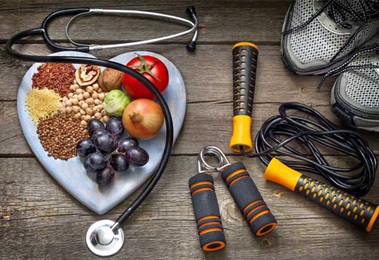5 Reasons You May Be at Risk for Liver Disease
The human liver is a wondrous organ. Each day it makes bile, converts nutrients from your diet, cleans toxins from your blood, breaks down fats, alcohol and medications, controls blood sugar and hormone levels, stores iron and much more. You shouldn’t wait for symptoms to appear to begin paying attention to the possibility of liver disease. Here are the top five risk factors for developing liver disease.

Exposure to Toxins
While the liver is responsible for cleaning toxins from the blood, overexposure to toxins can be harmful. Read warning labels on chemicals you use around the house, and wash fruits and vegetables before consumption to ensure you’re not digesting pesticides.
One step further: Buy clean fruits and greens. Johns Hopkins nutrition specialists recommends learning about pesticides in food production.
Harmful Supplements
Just because a supplement is labeled as “natural” doesn’t mean it’s good for you — many herbs and supplements have been associated with liver damage. In fact, twenty percent of liver injury in the U.S. is caused by herbs. Taking more than one medicine or herb that acts on the liver may compound the issue. Tell your doctor about every medication and supplement you take, even occasional or over-the-counter remedies.
One step further: Check for yourself. Search the LiverTox® database of medications, herbs and supplements known to have an effect on the liver.
Too Much Alcohol
Alcoholic fatty liver, which causes liver inflammation (alcoholic hepatitis), eventual scarring (cirrhosis) and even liver cancer, is a process that begins on as little as four drinks a day for men and two for women. By the time you show symptoms, your liver may be damaged beyond repair. The good news: people who stop drinking at the fatty liver stage may find their condition reversing itself.
One step further: You owe it to yourself to know — is your drinking hurting your liver? A simple blood test can tell you the answer.
Obesity, Diabetes or High Cholesterol
These conditions can cause nonalcoholic fatty liver disease, which may also lead to cirrhosis and liver cancer. Fatty liver disease is the world’s fastest growing reason for needing a liver transplant. As with alcoholic fatty liver, it can be reversed at the “fatty” stage by cutting simple carbohydrates like bread and sugar and eating more fruits, vegetables and protein. Another tip: Drink lots of coffee.
One step further: Struggling with weight? Don’t give up; you’re not alone. Read an overview of obesity treatment in the Johns Hopkins Health Library.
History of Liver Disease
Whether you or a family member has experienced liver disease, you may be more vulnerable to liver conditions. For example, hepatitis B or C and hemochromatosis are risk factors for liver cancer. If a close relative ever had a genetic liver disease, such as hemochromatosis, Wilson disease or alpha-1-antitrypsin deficiency, then you should watch out for symptoms. If you or an immediate family member has had liver disease, you’ll need to avoid alcohol.
One step further: Make a liver enzyme test part of your annual physical.





